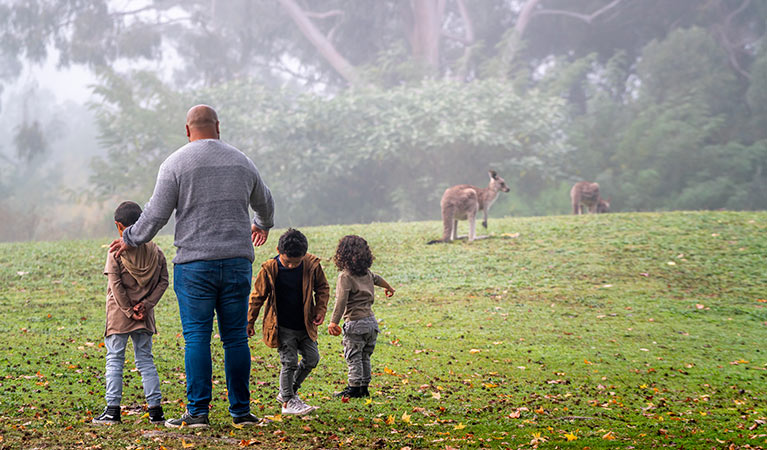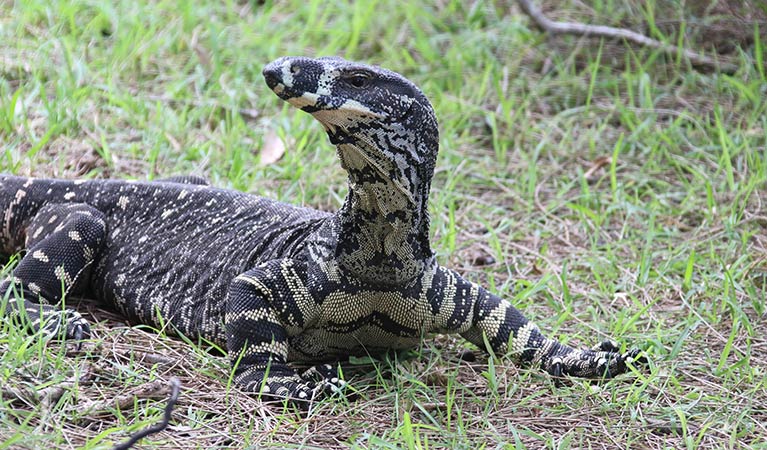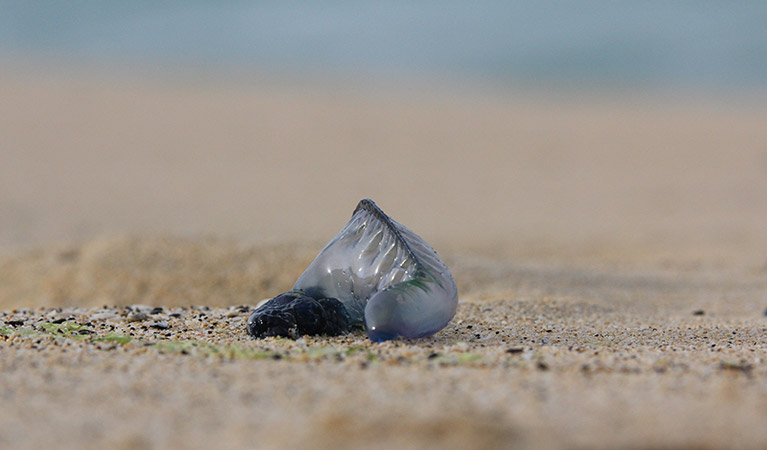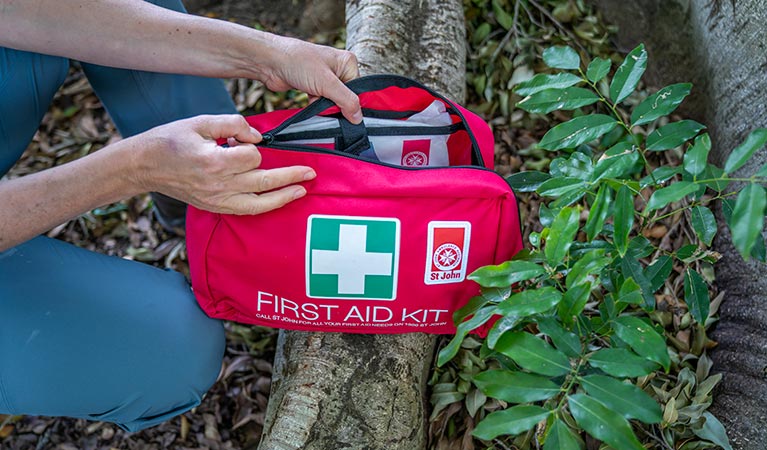Wildlife encounters
National parks are great places to escape to and explore. Keep yourself and our wildlife safe by understanding the risks of wildlife encounters and how to avoid them.
Be prepared
- Take responsibility for your own safety and the safety of others in your care.
- Check that the battery on your phone is charged before setting out. If there is an emergency call Triple Zero (000). Many national parks have patchy mobile reception.
- Carry a first aid kit, know how to treat a snake bite and if you're visiting a coastal park, know how to treat sea creature bites and jellyfish stings.
- Have a sealable container for food and scraps.
- Carry a hand towel in a small container so you can wash well away from creeks. Creeks are vital to the survival of wildlife. Soap and detergent are harmful to some wildlife, such as frogs.
Stay on track
All native plants and animals are protected. You are in their home. Watch from a distance and stay on the track to avoid disturbing them.
Watch for snakes and reptiles
- Snakes, like other reptiles, warm themselves in sunshine, on rocks and in the open area created by a walking track. Alert them by tapping a walking stick on the ground, so they can feel the vibration and retreat under cover.
- If you see a snake on the path, stop, walk slowly backwards and wait to allow it to pass. Don’t poke it or try to move it as it will think you are trying to attack it and may become aggressive. Most snake bites occur when people try to kill or capture snakes.
- If there is a fallen log in your path, step onto the top and check before stepping over, in case a snake or other animal is seeking shelter on the other side.
- Check flowing water after rain. The water flow in creeks are unpredictable and can rise quickly, carrying debris and washed in wildlife such as snakes.
- Know how to treat a snake bite
Cover up
Leeches, ticks and bees may be present. Wear light-coloured clothing to cover your arms and legs, a hat and insect repellent. Keep your tent closed to keep them out.
Keep food out of sight
- Never feed wildlife in a national park without the permission of the park manager.
- Native animals are adapted to foraging in native bushland. Feeding native animals can harm them. It promotes scavenging behaviour and can make them sick, demanding and aggressive.
- Sit your children nearby when eating, otherwise their food may be an easy target for wildlife seeking an easy feed.
- Never leave your food or food scraps lying around. Store your food and rubbish in secure containers and put them in your vehicle. Don’t keep food in your tent, or you may have uninvited visitors. They can leave quite a mess.
- Dispose of rubbish in lidded bins or take it home with you to stop animals scavenging and spreading rubbish as they delve for food.
Keep your distance
Take your camera with you. You can get closer to an animal by zooming in on a photograph.
Kangaroos can become aggressive if they feel threatened, causing serious injuries. If you are approached by a kangaroo that has been fighting, moving around females or heard growling, do not run away, walk towards it, stand up tall, stare at it, wave your arms about or offer it food. You must remain calm and still until the animal moves away. If it continues to come closer, crouch down and keep low to the ground, covering your face and back of neck with your hands and move behind a shrub or other cover.
If you’re in a regional park that allows dogs, keep your pet on a lead. Kangaroos feel threatened by dogs and will vigorously defend against them, not only causing harm to all animals involved but could put you in a dangerous situation.
Be tolerant of wildlife
During breeding season, you may come across wildlife actively protecting their young. Whether it's a magpie defending their nesting tree in a picnic area or a masked lapwing stopping you from accessing a grassed area in a campground, give them space.
Change your route through these areas, or you may be swooped as these caring parents defend their territory.
Be alert when driving
Avoid driving at dawn and dusk because native wildlife generally come out to feed at these times.
Scan the road and verges ahead of you as you drive. Kangaroos and wombats are drawn to the green pick on the side of the road, while raptors and crows scavenge unfortunate roadkill carcasses.
If you find injured, sick or orphaned wildlife, contact a licensed wildlife rescue and rehabilitation group, a local vet or the nearest National Parks office.




